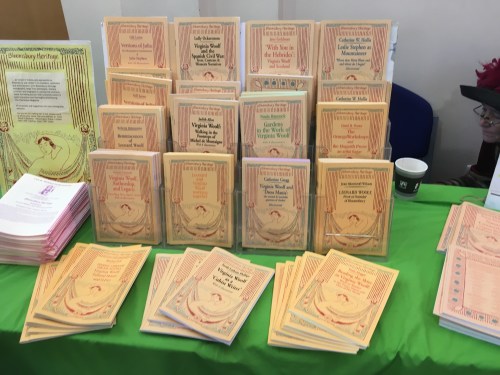In her commemoration of the anniversary of Virginia Woolf’s death, Paula Maggio refers to the coverage in the New York Times. This took me back to one of my favorite novels, The Lost Garden by Helen Humphreys, which was a prominent example in my 2010 Bloomsbury Heritage Series monograph, Beyond the Icon: Virginia Woolf in Contemporary Fiction.
refers to the coverage in the New York Times. This took me back to one of my favorite novels, The Lost Garden by Helen Humphreys, which was a prominent example in my 2010 Bloomsbury Heritage Series monograph, Beyond the Icon: Virginia Woolf in Contemporary Fiction.
I’ve excerpted the section here:
“The Lost Garden, a story of a team of ‘Land Girls’, as the Women’s Land Army during World War II was known, begins at the time of Woolf’s death, but she nevertheless exerts a dominant influence. Helen Humphreys builds a connection with Woolf through Gwen Davis, a horticulturalist who is assigned to oversee wartime food production at a Devon farm. When Gwen is on the train out of London in March of 1941 to assume her duties, she sees over someone’s shoulder the announcement on the front page of The Times of Virginia Woolf’s disappearance and likely death:
I think of the letter I was writing in my head this morning to Mrs. Woolf. All the letters I write in my head. And now I’ve missed my chance to let her know how much I have loved her books, and to tell her that one evening, seven years ago, I think I followed her through the streets of London.
“Woolf is never far from Gwen’s thoughts. When viewing the estate at which she will be working, she notes that, ‘There is a river at the bottom of the hill. I think of Mrs. Woolf’. When one of her charges tells about her fiancé, who is missing in action, Gwen reflects that, ‘This makes me think of Virginia Woolf. Missing in action. That’s exactly what’s happened to her. She seems definitely to be a casualty of war at the moment. Like any other’.
“When Woolf’s death is confirmed, Gwen turns to the novel she treasures, To the Lighthouse. The final scene brings her clarity and closure:
There is Lily Briscoe on the lawn, trying to finish her painting… Her hand holds a paintbrush as a conductor holds a baton. This is the music of the moment, these words and images, and all of a sudden I know that it doesn’t matter whether or not it was Mrs. Woolf I followed through London that June evening seven years ago. I will never be closer to her than now. The book is the shared experience, the shared intimacy. The author is at one end of the experience of writing and the reader is at the other, and the book is the contract between you.
“Woolf has been an almost tangible presence, and the physical proximity of Gwen’s earlier sighting of her seems to transcend Woolf’s death and bring comfort, maintaining the ethereal connection that is enhanced by her identification with the novels. Gwen feels a bond with Woolf, a sense that in spite of obvious differences, they shared some common sensibilities, perhaps were kindred spirits. Woolf anchors Gwen in the reality of her life while at the same time enabling her to escape it.
“The Lost Garden is so infused with Woolf, deliberately invoking both the pathos of her disappearance and death and the magnitude of her impact on one reader.”




You must be logged in to post a comment.